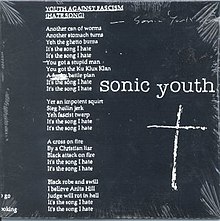
Sonic Youth was an American rock band based in New York City and formed in 1981. Founding members Kim Gordon, Thurston Moore and Lee Ranaldo remained together for the entire history of the band, while Steve Shelley (drums) followed a series of short-term drummers in 1985, rounding out the core line-up. Jim O'Rourke was also a member of the band from 1999 to 2005, and Mark Ibold was a member from 2006 to 2011.
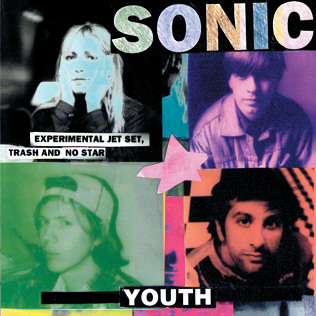
Experimental Jet Set, Trash and No Star is the eighth studio album by American experimental rock band Sonic Youth, released on May 10, 1994, by DGC Records. It was produced by Butch Vig and recorded at Sear Sound studio in New York City, the same studio where the band's 1987 album Sister was recorded. Unlike its predecessor Dirty, Experimental Jet Set features a more low-key approach and references the band's earlier work on the independent record label SST Records. The album contains quieter and more relaxed songs that deal with personal and political topics.
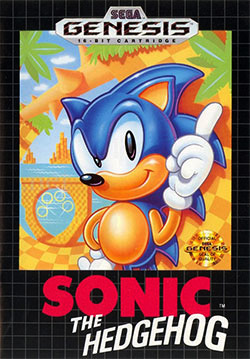
Sonic the Hedgehog is a 1991 platform game developed by Sonic Team and published by Sega for the Genesis/Mega Drive. It was released in North America on June 23 and in PAL regions and Japan the following month. Players control Sonic the Hedgehog, who can run at near supersonic speeds; Sonic sets out on a quest to defeat Dr. Robotnik, a scientist who has imprisoned animals in robots and seeks the powerful Chaos Emeralds. The gameplay involves collecting rings as a form of health, and a simple control scheme, with jumping and attacking controlled by a single button.
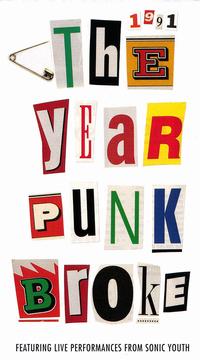
1991: The Year Punk Broke, released theatrically in 1992, is a documentary directed by Dave Markey, featuring American alternative rock band Sonic Youth on tour in Europe in 1991. While Sonic Youth is the focus of the documentary, the film also gives attention to Nirvana, Dinosaur Jr., Babes in Toyland, Gumball and The Ramones. Also featured in the film are Mark Arm, Dan Peters and Matt Lukin of Mudhoney, and roadie Joe Cole, who was murdered in a robbery three months after the tour ended. The film is dedicated to Cole.

Green Hill Zone is the first level of the platform game Sonic the Hedgehog, which released for the Sega Genesis in 1991. The level is grassy and lush, with environmental features such as palm trees, vertical loops and cliffs, and is the home of numerous forest animals. Like the game's other levels, Green Hill comprises 3 acts; in the third, Sonic fights antagonist Doctor Eggman before moving to the second level, Marble Zone. It was constructed by level designer Hirokazu Yasuhara with its musical theme by Masato Nakamura.

Dirty is the seventh full-length studio album and second double album by American rock band Sonic Youth, released on July 21, 1992, by DGC Records. The band recorded and co-produced the album with Butch Vig in early 1992 at the Magic Shop recording studios. The sound on Dirty was inspired by the popularity of grunge music at the time, and has been described by Billboard magazine as experimental rock.
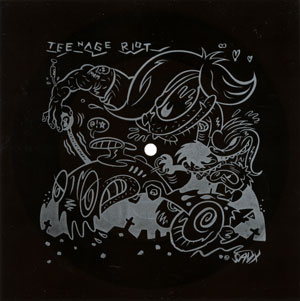
"Teen Age Riot" is a song by American rock band Sonic Youth, and the first single from their 1988 album, Daydream Nation. It received heavy airplay on modern rock stations and considerably expanded their audience.
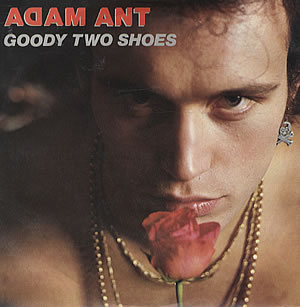
"Goody Two Shoes" is the debut solo single by Adam Ant, released on 7 May 1982. It became Ant's third overall number one in the UK and his highest charting song in the US, where it peaked at number 12.

"Dirty Deeds Done Dirt Cheap" is a hard rock song by the Australian band AC/DC. Written by group members Angus Young, Malcolm Young, and Bon Scott, it was recorded for the title track of their album Dirty Deeds Done Dirt Cheap, released in September 1976.
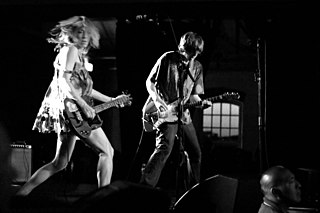
The discography of American rock band Sonic Youth comprises 15 studio albums, seven extended plays, three compilation albums, seven video releases, 21 singles, 46 music videos, ten releases in the Sonic Youth Recordings series, eight official bootlegs, and contributions to 16 soundtracks and other compilations.

"Drunken Butterfly" is a song by American rock band Sonic Youth from their seventh studio album, Dirty (1992). It was released as the fourth and final single from the album in August, 1993, by Geffen Records. The song was written and produced by Sonic Youth, with additional production provided by Butch Vig.

The Destroyed Room: B-sides and Rarities is a compilation album by Sonic Youth. This album contains tracks previously only available on vinyl, limited-release compilations, imports and B-sides to international singles. The tracks, which also include unreleased material, were hand-picked by the band. The album was released on December 12, 2006. A double vinyl LP edition with two extra tracks was released in early 2007 on the band's own Goofin' Records label. The cover image, as well as the album's name, is "The Destroyed Room", a 1978 photograph by Canadian artist Jeff Wall.

"Bull in the Heather" is a song by American alternative rock band Sonic Youth from their eighth studio album, Experimental Jet Set, Trash and No Star (1994). It was released to radio as the lead single from the album on April 19, 1994, by Geffen Records. The song was written collectively by Sonic Youth, and production was done by Butch Vig. According to band member Kim Gordon, the song is about "using passiveness as a form of rebellion."
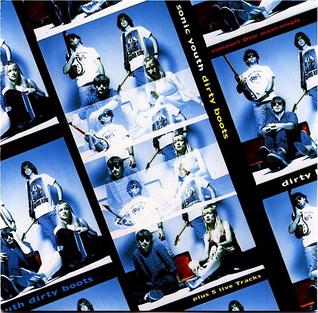
"Dirty Boots" is a song by the American rock band Sonic Youth from their sixth studio album, Goo (1990). It was released as the third and final single from the album in April, 1991, by DGC Records. The song was written and produced by Sonic Youth, with additional production from Nick Sansano and Ron Saint Germain. The single included five live tracks taken from a concert recorded on November 3, 1990 at University of California, Irvine's Crawford Hall in Irvine, California. The complete show was released in 2019 as "Live In Irvine 1990", with it being part of the Sonic Youth Archive series of digital releases.

Corporate Ghost is a Sonic Youth DVD released by DGC in 2004. It is a collection of their music videos from 1990 to 2002.
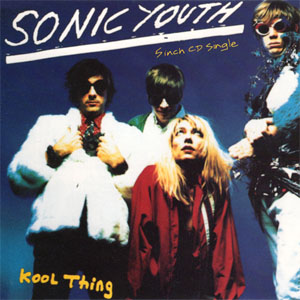
"Kool Thing" is a song by American rock band Sonic Youth, released in June 1990 in the United States and September 1990 in Europe, as the first single from their sixth studio album Goo. The song was inspired by an interview bassist/singer Kim Gordon conducted with LL Cool J for Spin. Although he is never mentioned by name, the song's lyrics contain several references to LL Cool J. Gordon's lyrics make reference to several of the rapper's works, including the single "I Can't Live Without My Radio" and the album Walking with a Panther. She also repeats the line "I don't think so", which appears in LL Cool J's "Going Back to Cali". Chuck D also contributed spoken vocals to the song.

"100%" is a song by American rock band Sonic Youth from their seventh studio album Dirty (1992). It was released as the lead single from the album in July 1992, by DGC. Written by Sonic Youth, the song discusses the murder of Joe Cole, a friend of the band who was killed in an armed robbery on December 19, 1991.

"Sugar Kane" is the third single from Sonic Youth's 1992 album Dirty. It was released in 1993 on DGC.
Adam Ant is a British post-punk, new wave artist. He was the lead singer of Adam & the Ants until their split in early 1982, by which time they had recorded three studio albums. Ant, however, would go solo, and release an additional five studio albums throughout the 1980s and early 1990s. After a gap of nearly 18 years, his sixth released solo studio album came out in early 2013. A planned follow-up album recorded the following year currently officially remains at developmental stage.

"Hello Good Morning" is a song by American musical trio Diddy – Dirty Money, released on March 30, 2010 as the second single from their debut studio album, Last Train to Paris. The electronic dance song incorporates an acid squelch section in the middle eight, and was written by Marcella Araica, Richard "Rico Love" Butler, Clifford "T.I." Harris and Nathaniel "Danja" Hills; the latter also handled its production. Southern rapper T.I. guest performs a verse on the song and Miami-based rapper Rick Ross guest performs on the music video and official remixed version, the latter of which replaces T.I.'s portion with a verse by Trinidadian-born rapper Nicki Minaj.
